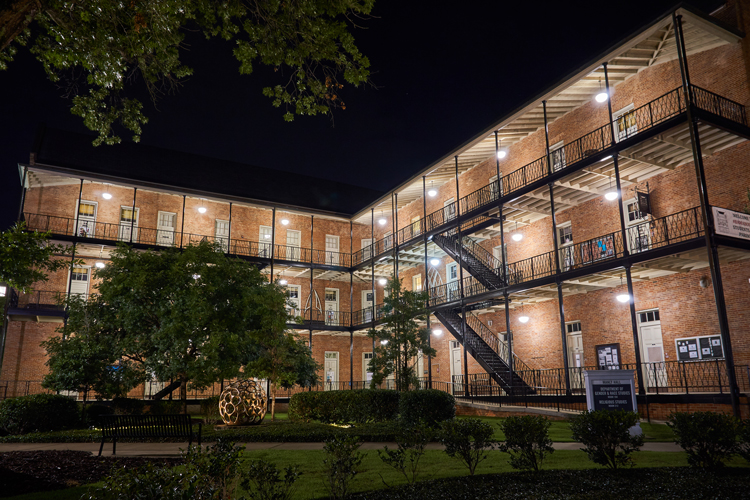The Department of Religious Studies offers a Master of Arts (MA) in Religion in Culture.
The premise of the MA degree is that the work taking place in our field has wide relevance — promoting both critical analysis and innovative communication skills to convey the relevance of our work are therefore the cornerstones of the degree. Our 36-credit hour degree program (2 years of full-time course work). The degree anchors students in two critical foundations:
- becoming conversant in contemporary social theory and applying it to their area of interest in the study of religion
- developing competencies in the tools of the public, digital humanities
In their first semester, students will not only be reading widely in social theory and applying it to a historical, regional, or ethnographic example of their choice but will also be gaining familiarity with a wide variety of digital tools — from video and audio recording and editing to making webpages and working with “big data” — that will assist them in sharing those findings.
Designed for students hoping to pursue doctoral work, the degree is also explicitly intended for those aiming to use the skills gained in an MA in any number of other professions — places where the analytic skills gained from working in social theory are enhanced by their communication skills and digital expertise.
Consult the requirements below, visit the UA Graduate Catalog, or review the Grad Handbook for more information.
Degree Requirements
Students will usually enroll in nine (9) credit hours per semester, for a total of 36 credit hours across four semesters. Although summer independent study courses are also an option, they are not covered by the usual Teaching Assistant tuition waiver.
Required Courses
Six hours of Foundation courses will be taken in the fall semester of the first year:
Three hours of required courses will be taken in the spring of the second year:
- Capstone Graduate Seminar
If a student, with the permission of their supervisor, opts for the thesis route, then in their final semester they will enroll in:
- Six hours of Thesis Research
If with their supervisor’s permission, a student instead opts for the comps route, they may either write comprehensive exams in their final semester, with a committee of at least three REL faculty setting the exam(s), or, as is more likely the case, they will instead satisfy the Grad School’s requirement of a culminating experience in the degree by means of the already required REL 590 Capstone Graduate Seminar (usually taken in their final spring semester).
For more information about course requirements, see the Graduate Catalog, or visit the Degree Plan/Enrollment page for details about course registration.
Check out our Degree Timetable for a recommended program timeline.
Thesis vs. Seminar Paper
As stated immediately above, students can opt for two routes toward the completion of their degree, a Thesis or comps (with REL 590 normally playing the role of their final culminating experience in the degree). Should the latter route be taken, then students are encouraged to consider producing a final piece of original research (in consultation with their supervisor), whether a digital project or written research essay, that, ideally, will be presented to REL faculty and students at the end of their final semester.
Note: This presentation does not have to meet the requirements and deadlines of theses presented to the Graduate School.
Elective Courses
In consultation with their advisors, students will complete a total of 36 hours of graduate course work, including independent study courses and seminars in REL, plus graduate courses from other departments (in consultation with their advisor). For example, depending on the student’s program of study, courses in foreign languages taught through the Department of Modern Languages and Classics may be recommended.
Colloquium
A required (for first-year MA students), non-credit Graduate Colloquium, led by the graduate director, meets twice each semester to discuss a variety of professional issues in the study of religion in particular and higher ed in general.
Certificates and Credentials
Students will also earn up to three additional certificates (none of which require a fee):
- one in online pedagogy
- one in the digital humanities
- one in museum studies (if desired; the museum studies certificate is not required)
More Information
For more information, contact Dr. Vaia Touna, graduate director, at vaia.touna@ua.edu.
